Celestial beauty of Dark Night Skies captured in South Downs astrophotography contest
February 25, 2022
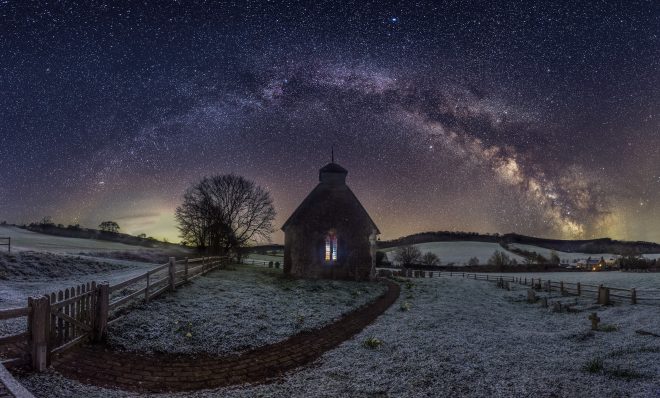 An awe-inspiring starry night on the South Downs and a “towering super moon” are among the winners of this year’s astrophotography competition.
An awe-inspiring starry night on the South Downs and a “towering super moon” are among the winners of this year’s astrophotography competition.
More than 100 entries were received for the National Park’s popular cosmic photography contest and a judging panel has now chosen the winners across three categories.
The South Downs National Park is one of 19 International Dark Sky Reserves, recognising it as one of the best, and most accessible, places in the world to see immense views of the cosmos.
Judging the contest were Dan Oakley, “Dark Skies” Ranger for the National Park, Graham Bryant, a Fellow of the Royal Astronomical Society, and Petersfield-based Tiffany Francis-Baker, author of Dark Skies.
Taking the top spot in the South Downs Dark Skyscapes category was “Snow In Springtime” by Neil Jones. The photograph shows the Milky Way in all its glory, arching above the beautiful St Mary’s Church, near Upwaltham, in West Sussex.
Tiffany said: “I think it’s a really charming night-time picture of the South Downs – very beautifully composed.”
Dan said: “It’s understated. You could see this amazing view of the South Downs at night on a Christmas card.”
Graham said: “I like the arching of the Milky Way and how well framed it is. It’s got a serenity about it which I rather like.”
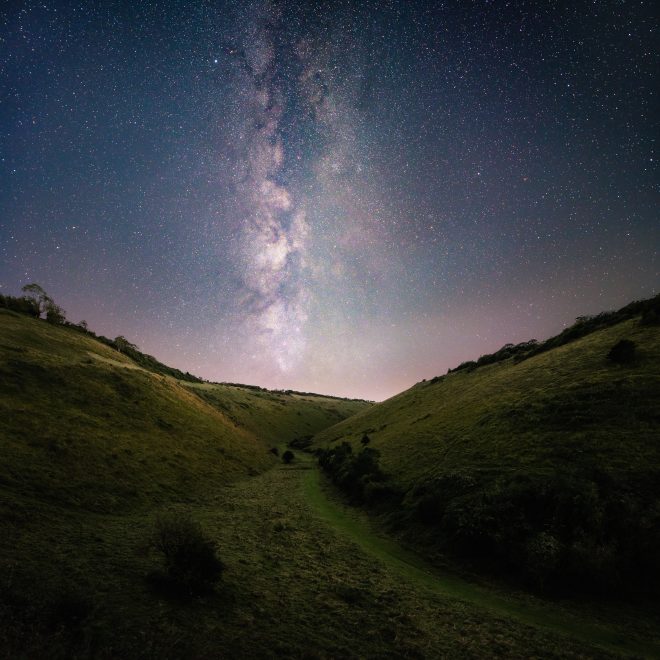
Runner-up was “Valley of Stars”, taken by Michael Harris, which shows a stunning night-time view of Devil’s Dyke, near Brighton.
Tiffany said: “I just want to dive into this picture – it really encapsulates the South Downs National Park for me.”
In the Living Dark Skies category, the judges crowned “Stargazing”, by Pablo Rodriguez, as the winner. The mesmerising image shows a walker gazing in awe at the beauty of the star-studded sky at Seven Sisters.
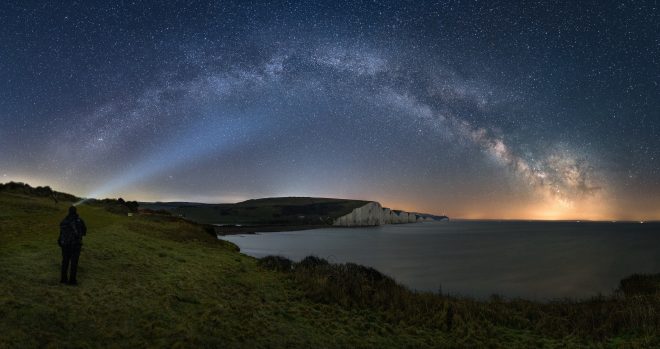
Tiffany said: “For the theme of Living Dark Skies, this person looks like they are mid-hike. I think the archway is amazing and the colours are beautiful.”
Runner-up in the category, which had no geographical limit, was “White Sands”, by Jeff Pfaller. The photograph was taken at White Sands National Park, in New Mexico, on a cross-country road trip to visit 14 National Park sites in the US.
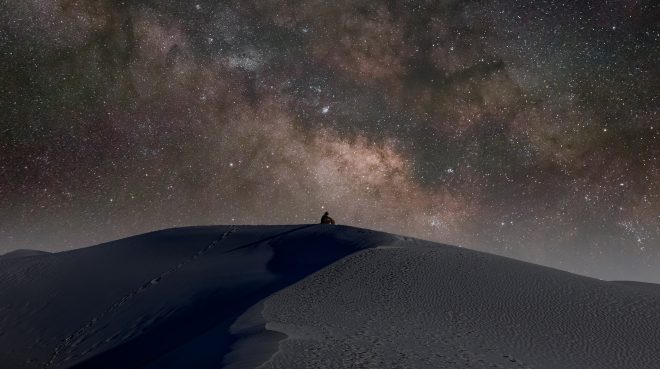
The final category had to capture the magnificence of the moon, or the Milky Way, and it was shots of our closest celestial neighbour that captured the imaginations of the judges. The winner was “Towering Super Moon”, by Richard Murray, which shows the moon rising behind the Vandalian Tower near South Harting, West Sussex.
Graham said: “The moon rises fairly quickly, so clearly this photographer has thought about this and got into the right position at just the right moment. Another five minutes and you would not be able to get this shot.”
Tiffany said: “I love the wobbly edge of the moon. It’s nice that it looks natural and I love the big expansive sky with the birds flying.”
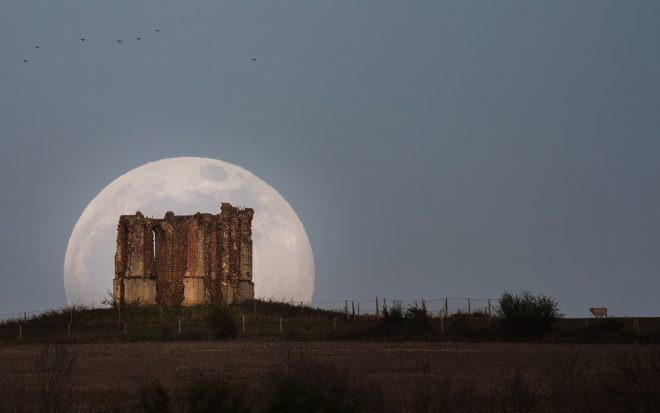
Dan said: “It’s quite a simple picture to take. This shows you can get out in the National Park with a camera and take a really amazing photograph in 30 seconds.”
Runner-up was a dreamy picture called “Moon and Cloudscape over South Downs”, by Graham Devenish, who captured the amazing image of a moon surrounded by swirling clouds from his back garden at Findon Valley, Worthing.
Graham said: “I haven’t seen an image like this before and it’s very captivating.”
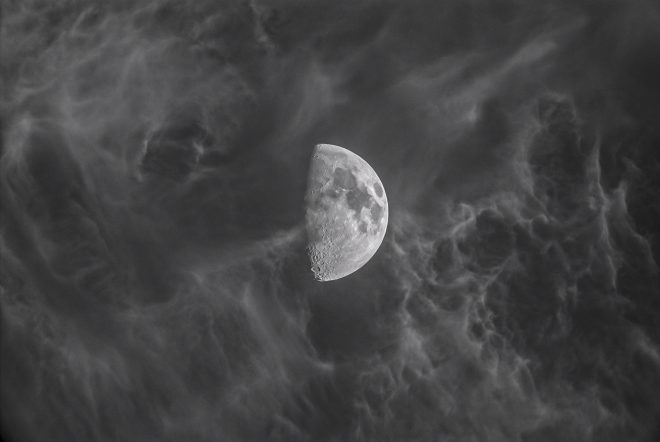
Two images were also highly-commended – “Night at Lord’s Piece”, by Alan Crossland, showing a misty night-time view of a South Downs heathland, and “Confectionary Giant”, by Michael Harris, which was taken at Whataroa, South Island, New Zealand.
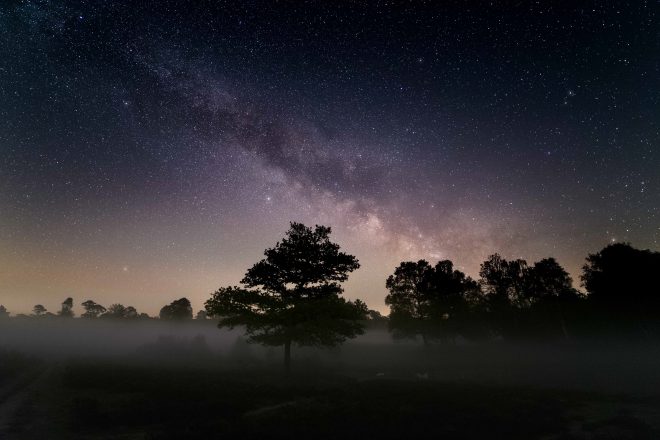
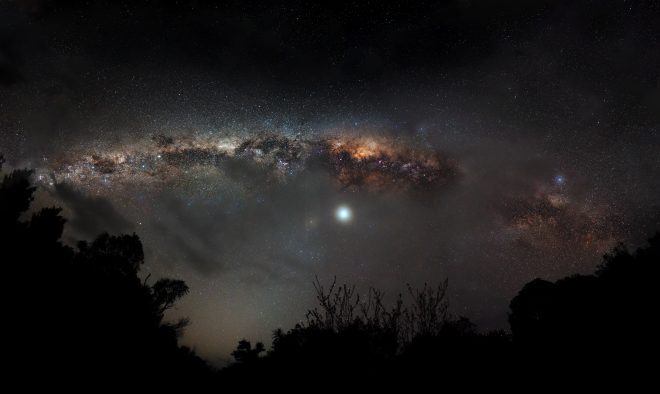
The winners will pick up a prize of £100, while the runners-up will get £75.
The People’s Choice vote for the astrophotography competition will launch on 27 February and the public will have three weeks to vote for their favourite night-time shot out of a choice of shortlisted images, with a prize of £50 going to the winner. Cast your vote here.
